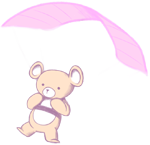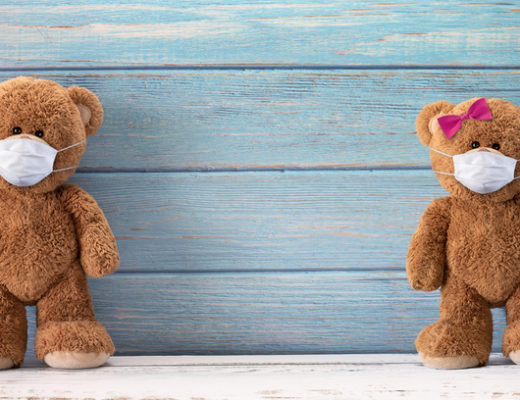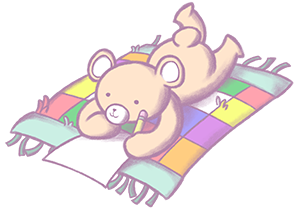By Janis D. Gioia, MAEd. and Elise C. Gioia
Children with anxiety, autism and other special needs struggle with holidays in the best of times. For many, this year has been one of the worst of times.
Covid 19 will impact this holiday season. It’s a challenging time in many ways. But, while we may struggle with more social isolation, remember that many children with anxiety and special needs do better with less-busy, non-traditional holiday gatherings.
Children with autism and anxiety who struggle with lights, sounds, smells and socializing may may be comforted by quieter holiday celebrations.
Children who fear the mall Santa may be thrilled he’s behind Plexiglass or not at the mall at all.
While Covid has taken some of the hustle from the holidays, the anxiety and uncertainty its created have affected everyone. The new realities of remote learning, lack of special education services, limited access to mental health services and counseling have caused unprecedented levels of stress for children and parents.
So many things seem different, so many things have changed, and for any of us, especially children with autism and anxiety, change is scary. Unsettling. But there are plenty of small things you can do that will comfort your child in big ways.
5 Suggestions for a more soothing season
Talk to your child
Children with anxiety and autism need to know what to expect, every day and especially at the holidays. Fill your child’s daily planner or visual schedule with routines and plans they can expect…things you know won’t change, and give them a framework of what you think the holidays may look like this year.
Explain that seeing family and friends may be limited. For some children this will be a great disappointment. Let them know that you are disappointed too.
Sharing feelings and then find ways to help children find the light in what has been a very dark year. Let them know that being socially isolated is difficult, but that they may have more time for making holiday crafts or gingerbread men.
Books like While We Can’t Hug will help children who are missing loved ones due to social distancing.
Some children with anxiety and autism may take comfort in the fact that there will be less traveling and fewer unfamiliar faces to see.
Ask your child what is the most magical part of the season…and then see if there are still ways to make those memories happen.
Focus on the familiar
Familiarity comforts children with anxiety and autism.
This would not be the year to try a new holiday main dish. Continue with holiday routines and activities that your child has enjoyed in the past. If your child likes decorating the tree or baking holiday cookies, plan to do the things they enjoy.
Plan calming holiday activities
Coloring in a holiday coloring book.
Going to the zoo (usually much cooler and less crowded.)
Taking a walk to see holiday lights (if lights don’t cause sensory overload.)
Watching favorite holiday movies with family.
Reading a holiday book by the fire with a cup of hot chocolate.
Baking a simple holiday treat together (be sensitive to sensory triggers)
Remember that online isn’t for everyone
Visiting over Zoom or Facetime is a great way to keep up with family and friends, but it may not work for children with autism and anxiety.
Many children with social anxiety and autism become fearful of seeing themselves on a screen, or having to communicate in ways that don’t seem natural to them.
They may experience shyness, blushing, stammering when speaking, nausea, and avoidance behaviors associated with social anxiety. This helpful article from the Mayo Clinic offers more information on social anxiety disorder.
Don’t force your child to participate in Zoom meetups or anything else that exacerbates their anxiety. Instead, they may enjoy drawing a picture or dictating or writing a letter to a grandparent. Grandparents or other loved ones can send an audio message or a recording of them reading one of your child’s favorite books.
Practice self care and help your child find soothing rituals and routines
Self care comes in many forms: daily prayer, meditation and yoga. Exercise. Keeping a gratitude journal. Using essential oils to create calm spaces in your home.
Now, more than ever, we as adults, and our children, need soothing practices to ground us internally when things in our external world seem out of control. Children look to us and often model their responses to the energy we project. It’s important that we nourish ourselves and practice good coping skills and positive self talk, aloud, so that our children can hear us.
Wrap yourself in the softest blanket you have and watch the stars twinkling in the night sky. Feel the Universe surrounding you and the hope that light shines through the darkness.
We hope these ideas help you help your child have a holiday season that is calm, blessed and beautiful.
Remember, in the stillness and the quietness, in the gentle healing moments, comfort comes.
Peace, Jan and Elise
These links have more tips to help anxious children with the holidays:

By signing up, you’ll also receive your free guide with 20 ways to comfort your child…mind, body and spirit.






 in Ohio
in Ohio
No Comments